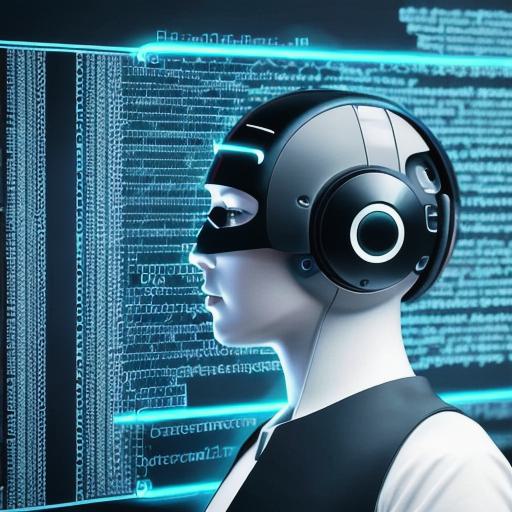Should Software Engineers Be Concerned About the Impact of AI on Their Careers

Introduction
The rise of artificial intelligence (AI) has been a topic of intense debate among people across various fields, including software engineering. Some argue that AI will replace human workers, leading to massive job losses in the future. However, others claim that AI will only augment the capabilities of human beings and create new job opportunities in the process. In this article, we’ll explore both perspectives and examine the impact of AI on software engineer careers.
What is AI?
Artificial intelligence refers to the simulation of human intelligence in machines or computers that are programmed to perform tasks that typically require human intelligence, such as reasoning, problem-solving, perception, learning, and decision-making. AI can be categorized into three types: narrow or weak AI, general or strong AI, and superintelligent AI.
The Impact of AI on Software Engineering Careers
Narrow AI
Narrow AI is the most common type of AI that exists today. It is designed to perform specific tasks or solve a particular problem, such as speech recognition, image classification, and recommendation systems. Software engineers have been working with narrow AI for decades, and their skills are in high demand in this field.
According to a report by Gartner, the global AI market will reach $390.6 billion by 2021. This growth is driven by businesses looking to automate processes, improve customer experiences, and gain insights from data. Software engineers who specialize in AI development have an excellent opportunity to grow their careers and earn above-average salaries.
General AI
General AI is a type of AI that can perform any intellectual task that a human being can do. While general AI is still in its infancy, some experts predict that it will revolutionize the way we work, live, and interact with machines in the future. If this prediction comes true, software engineers who specialize in general AI will have an enormous advantage over their peers.
General AI has the potential to create new job opportunities for software engineers. For example, researchers are developing autonomous vehicles that can learn from their experiences and make decisions on their own. Software engineers who specialize in machine learning algorithms will be essential in this field.
Superintelligent AI
Superintelligent AI is the most advanced type of AI that exists today. It is a hypothetical scenario where an AI system surpasses human intelligence and becomes capable of self-improvement at an exponential rate. While superintelligent AI is still a science fiction concept, some experts predict that it will happen in the future.
If superintelligent AI becomes a reality, software engineers who specialize in this field will be the most valuable assets to any organization. They will have the skills and knowledge needed to design and build AI systems that can learn from their experiences, adapt to new situations, and make decisions on their own.
Case Studies of Software Engineers Working with AI
Google’s AlphaGo
Google’s AlphaGo is a prime example of how software engineers have successfully used AI to solve complex problems. In 2016, AlphaGo defeated the world champion in the game of Go, which required advanced algorithms and machine learning techniques to analyze millions of possible moves.
The success of AlphaGo demonstrated the potential of AI to solve previously unsolvable problems and opened up new opportunities for software engineers in this field.
Amazon’s Recommendation System
Amazon’s recommendation system is another excellent example of how software engineers have successfully used AI to improve customer experiences. The recommendation system uses machine learning algorithms to analyze customer behavior and preferences, and then provides personalized recommendations based on this information.
The success of Amazon’s recommendation system has been instrumental in the company’s growth and has created new job opportunities for software engineers who specialize in this field.
IBM’s Watson
IBM’s Watson is a powerful AI platform that can learn from its experiences and make decisions based on data. Watson has been used in various industries, including healthcare, finance, and retail, to analyze complex data sets and provide insights that can help businesses make better decisions.

Software engineers who specialize in IBM Watson have an excellent opportunity to work with some of the most innovative companies in the world and contribute to groundbreaking AI projects.
The Future of AI and Software Engineering Careers
The Rise of Automation
As AI technology continues to advance, automation is becoming more prevalent across various industries. According to a report by McKinsey, up to 800 million jobs could be displaced by automation by 2030. While this will undoubtedly lead to job losses in some areas, it will also create new job opportunities for software engineers who specialize in AI development.
The Importance of Skills Transfer

As the world becomes more automated, software engineers will need to adapt to new technologies and processes. This requires skills transfer, which can be challenging but essential for career growth. Software engineers who are willing to learn new skills and keep up with emerging trends in AI will have an advantage over their peers.
The Importance of Ethics
As AI technology continues to advance, it is essential that software engineers consider the ethical implications of their work. This includes ensuring that AI systems are transparent, unbiased, and accountable. Software engineers who prioritize ethics in their work will be valued by companies looking for responsible AI development.
Summary
The impact of AI on software engineering careers is complex and multifaceted. While some predict that AI will replace human workers, others claim that it will only augment human capabilities and create new job opportunities. In this article, we’ve explored both perspectives and examined the impact of AI on software engineer careers in detail.
We have examined the three types of AI and how they can impact software engineering careers, including narrow AI, general AI, and superintelligent AI. We have also looked at real-life examples of software engineers who have successfully worked with AI to solve complex problems and improve customer experiences.
Finally, we have discussed the future of AI and software engineering careers, including the rise of automation, skills transfer, and ethics. As AI technology continues to advance, software engineers will need to be flexible, adaptable, and responsible if they want to thrive in this exciting field.
FAQs
1. Will AI replace human workers?
It is difficult to predict the future with certainty, but some experts claim that AI will only augment human capabilities and create new job opportunities.
2. What types of AI exist today?
There are three types of AI: narrow or weak AI, general or strong AI, and superintelligent AI.
3. How can software engineers work with AI?
Software engineers can work with AI by designing and building algorithms, analyzing data, and improving customer experiences.
4. What is the future of AI and software engineering careers?
The future of AI and software engineering careers will be shaped by automation, skills transfer, and ethics. Software engineers who prioritize these factors will have an advantage in this exciting field.